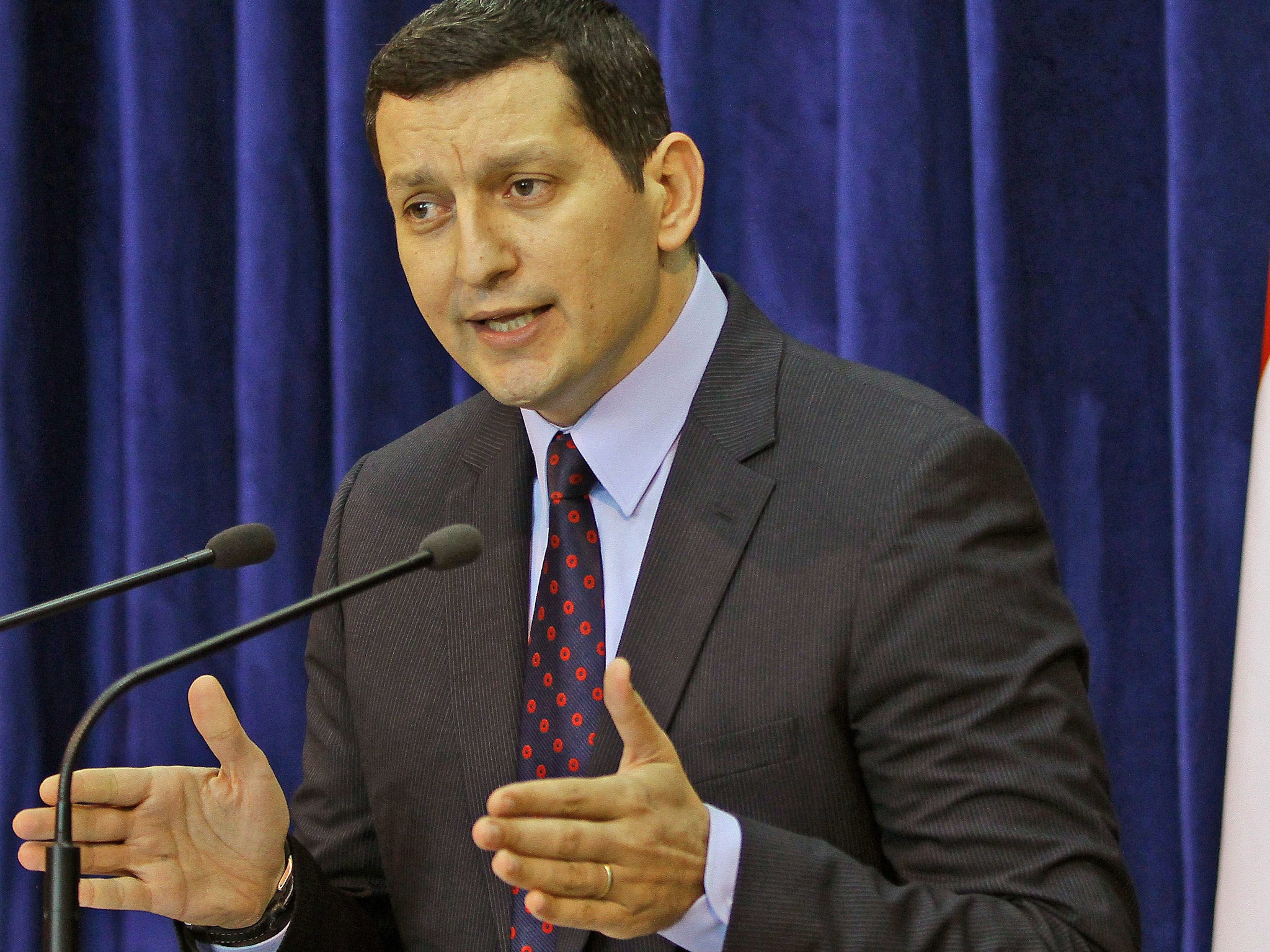Former foreign ministry spokesman Jihad Makdissi fled Syria because 'democracy had no place'

Your support helps us to tell the story
From reproductive rights to climate change to Big Tech, The Independent is on the ground when the story is developing. Whether it's investigating the financials of Elon Musk's pro-Trump PAC or producing our latest documentary, 'The A Word', which shines a light on the American women fighting for reproductive rights, we know how important it is to parse out the facts from the messaging.
At such a critical moment in US history, we need reporters on the ground. Your donation allows us to keep sending journalists to speak to both sides of the story.
The Independent is trusted by Americans across the entire political spectrum. And unlike many other quality news outlets, we choose not to lock Americans out of our reporting and analysis with paywalls. We believe quality journalism should be available to everyone, paid for by those who can afford it.
Your support makes all the difference.More than two months after abandoning the beleaguered Syrian government, the country’s former foreign ministry spokesman, Jihad Makdissi, made his first public statement about his defection today saying that the “destructive” situation meant that he could no longer “bear to stay in the country”.
Mystery had surrounded the whereabouts of Mr Makdissi since he disappeared on 3 December. Some diplomatic sources had suggested that he had fled to either the UK, or the United States.
Sky News Arabia, which is based in Abu Dhabi, posted a letter purportedly from Mr Makdissi, in which he laid out the reasons for his defection.
Often the voice of the Syrian regime, and one of the few senior members of the administration who spoke fluent English, the letter said that Mr Makdissi had left Syria because “of the polarisation and violence that left no place for moderation and diplomacy.”
In his first tweet since the end of November, Mr Makdissi confirmed the authenticity of the letter: “I confirm authenticity of the Press Release issued today where I explained why I left the regime and my current political position,” he said.
The letter added that rather than fleeing to the West, he was with some, “honest brothers who are helping the Syrian people overcome their humanitarian crisis with no discrimination. I didn’t travel to Europe or the United States although my passport would have easily entitled me to [do so].”
Attempting to draw a line between himself and the Assad government, Mr Makdissi’s letter said that those rebelling against Assad’s regime had rightful demands, “that no one could deny. The rebels, however, were still unable to convince the minds of Syrians of their movement because of reasons that are well known.”
Mr Makdissi came to the fore last July when he threatened that foreign intervention in the Syrian conflict could be met with chemical weapons. “Any stock of WMD or unconventional weapons that the Syrian Army possesses will never, never be used against the Syrian people or civilians during this crisis, under any circumstances,” he said. “These weapons are made to be used strictly and only in the event of external aggression against the Syrian Arab Republic.”
Any hope that the disparate rebel groups may have harboured that Mr Makdissi had strategic information that he might be willing to share were dashed, however. The letter claimed that his information was the same as that of any ordinary Syrian. One of the few Christians to hold a senior government job, Mr Makdissi is not thought not to have been part of the Assad inner-circle, which is dominated by Alawite ministers.
Whether Mr Makdissi in fact voluntarily left his post has been a matter of speculation, with a number of reports at the time suggesting that he had been sacked for straying too far from the government position. The Assad regime often says that the uprising is being led by bands of foreign terrorists. The civil war, which will be two years old next month, has already claimed the lives of at least 60,000 people.
Join our commenting forum
Join thought-provoking conversations, follow other Independent readers and see their replies
Comments